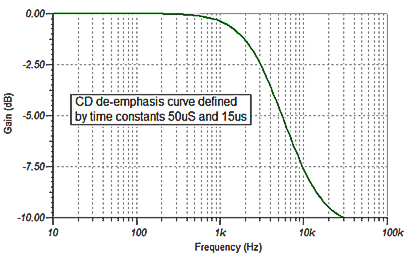I've no objection to tone controls per se. If you want to adjust to personal taste and for wayward recordings then fine. A fixed tuned system to a sound, no.
The thing I found is that the more neutral my speakers have become, the less I have felt the need to bugger around with things like tone controls. Less recordings sound objectionable.
Yep, if you seek detail as an audible result of a linear system (as I do) then linear is the way to go, then salt and pepper to taste. The more different recordings from different artists etc sound different on your system the more detail and resolving it is, the more they sound similar the more colored your system is, in general. Nether one is correct for everybody as I think we can all agree here. One is more linear though, and in general you can't go too wrong with a linear system over time. A colored one tends to make folks keep searching for new colors.
Oh yeah, just remembering my days with the parametric equalizer and the smiley face setting. And how more often than not, as a young dude with particulariy keen HF hearing, cranking in some negative db on the treble control so I could stand to listen to the damn recording screeching away like a banshee. Oh yeah, and on those early CDs, they were awful screechy in the HF, but hey, bass and midrange to die for compared to turntables. You know, they should have added some HF emphasis on the recording side of the redbook standard, and some HF deemphasis on the playback side, thus able to record those lower level high frequencies with enough bits activated to reduce those distortions and maybe not need hardly any dithering, maybe none. Hindsight, how sweet it is.....nobody every asked me though!
Last edited:

